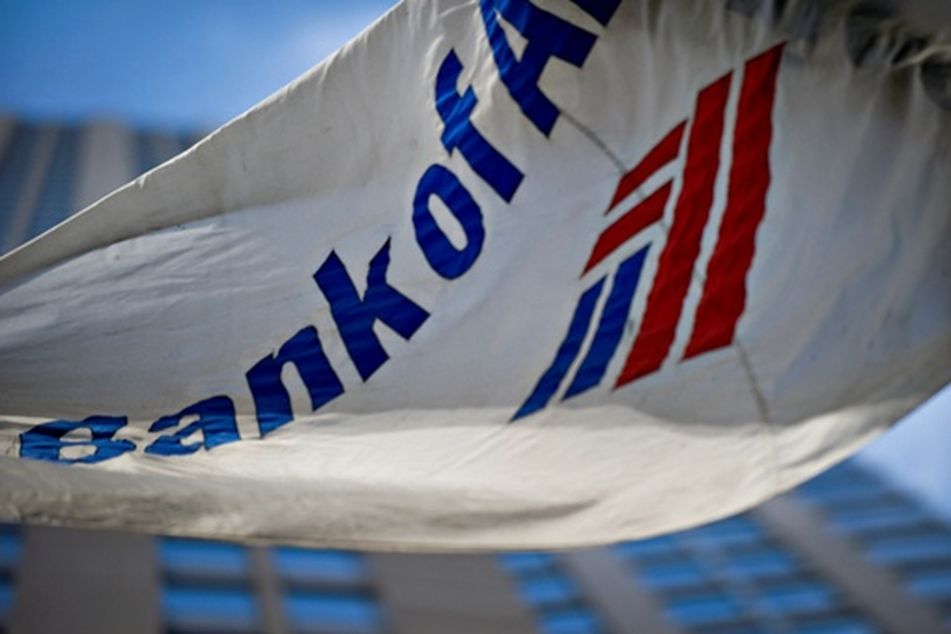Trust preferreds tempt investors with junklike yields

Investors reaching for yield are finding it in an unlikely place: battered financial companies.
Investors reaching for yield are finding it in an unlikely place: battered financial companies.
Bank of America Corp., the worst performer in the Dow Jones Industrial Average last year, has trust preferreds yielding 8.7 percent, according to data compiled by Bloomberg. The securities, known as TruPS, combine characteristics of debt and equity.
Many TruPS, generally issued on behalf of banks and insurance companies, are paying more than 7 percent, and some trade below face value even though they’re usually redeemed at par, said Joshua Siegel, managing principal of New York-based StoneCastle Partners LLC, which oversees about $2 billion of the securities. The high yields may be short-lived if banks start redeeming TruPS in 2013 in response to regulatory changes, said Jim Ulland, president of Ulland Investment Advisors.
“These are the best buy of any fixed-income in the market,” said Minneapolis-based Ulland, whose clients are getting an average yield of 7.75 percent on their trust- preferred portfolios.
While TruPS sold to retail investors usually have 30-year maturities and can’t be redeemed before five years, banks may call them within 10 years. Their interest payments can generally be deferred for as long as five years, yet need to be repaid. Yields on 10-year Treasury notes were 1.95 percent yesterday and 30-year bonds were at 2.98 percent, while below-investment-grade bonds were 8.47 percent, according to a Bank of America Merrill Lynch index.
Caveat Investor
TruPS do carry risk amid the uncertain outlook for U.S. banks. In a bankruptcy, trust-preferred investors are subordinate to senior and subordinated bondholders, though they are required to be paid before holders of common and preferred shares. Standard & Poor’s cut the ratings of Bank of America, Citigroup Inc., Goldman Sachs Group Inc. and Morgan Stanley to A- from A in November.
Bank of America, Citigroup and Morgan Stanley have said they may need to post billions of dollars of additional collateral and termination payments on trades because of a one- level downgrade in their credit ratings.
Although most TruPS for retail investors are set at a fixed rate, there are some that may have floating rates tied to different benchmarks, said Arthur Tetyevsky, a credit strategist at Jefferies Group Inc. in New York, who’s focused on preferred and hybrid securities for more than 10 years.
“We’re in a yield-starved environment,” with 10-year U.S. Treasuries yielding less than 2 percent, said Guy LeBas, chief fixed-income strategist at Janney Montgomery Scott LLC in Philadelphia, which oversees $12 billion in fixed-income assets. “That type of return won’t help investors with their retirement goals.”
Tax Advantages
Banks have used TruPS because they could count them as a portion of their capital and deduct the interest payments from their tax bills. About $141 billion of bank trust-preferred securities were outstanding on banks’ balance sheets as of Sept. 30, 2011, according to data from the Philadelphia Federal Reserve Bank.
In addition to Bank of America, firms such as JPMorgan Chase & Co., Citigroup, Goldman Sachs and Morgan Stanley have outstanding TruPS. One set of Citigroup’s TruPS is yielding 7.8 percent, Bloomberg data show.
Warren Buffett, chairman and chief executive officer of Berkshire Hathaway Inc., invested $5 billion in Charlotte, North Carolina-based Bank of America in exchange for preferred stock that will pay a 6 percent dividend and warrants that give Buffett the option to buy 700 million common shares at any time in the next 10 years for $7.14 each, according to the bank’s Aug. 25 statement. The stock closed yesterday at $5.80 after losing 58 percent last year.
Disappearing Benefit
Banks with more than $15 billion in assets will have to phase out the inclusion of TruPS issued before May 19, 2010, in their Tier 1 capital beginning in 2013, a change mandated by the Dodd-Frank financial-overhaul law.
It’s likely that banks will be redeeming more TruPS in 2013, regardless of call schedules, because of provisions that allow them to be redeemed when there are changes to their capital treatment, said Phil Jacoby, chief investment officer at Stamford, Connecticut-based Spectrum Asset Management Inc., which oversees $13.3 billion of preferred securities.
“What was a cheap form of regulatory capital is now just an expensive form of long-term financing,” said Josh Peters, editor of the newsletter Morningstar DividendInvestor. “The advantages for big banks to have them are essentially going away.”
Banks including Wells Fargo & Co. have already redeemed some of their TruPS, saying passage of the Dodd-Frank rules in July 2010 qualifies as a capital-treatment event that allows them to call the securities early.
Diversified Portfolio
Even with the regulatory changes, not all TruPS will be called immediately, said Janney’s LeBas. That would require a big outlay of capital, he said. Since insurance companies aren’t directly covered by the Dodd-Frank regulatory changes, it’s less likely insurance companies will start redeeming their TruPS in 2013, Tetyevsky of Jefferies said.
Ulland recommends that clients who want to buy TruPS use a portion of their cash allocation to invest in a diversified portfolio of the securities backed by the largest U.S. banks. Investors can sign up for news alerts so they know when banks may call their TruPS, since they’re generally required to file regulatory notices in advance, he said.
Volatility Impact
The most attractive TruPS are those that are trading below or just at par. If they’re trading above par, investors need to figure out when they may be called to calculate whether the yield will offset the capital loss, said Ulland. TruPS can be bought through conventional and electronic brokers, though they may be difficult to find online because their symbols can vary from system to system, he said. Since they’re nonqualified dividends, investors generally pay ordinary income tax on the interest payments.
LeBas of Janney said he recommended a 2 percent allocation to TruPS in the third quarter, down from 7 percent in the second quarter, because there’s too much volatility in the financial industry and TruPS may not be a stable short-term investment. His recommendation remained at 2 percent in the fourth quarter.
Price swings for U.S. financial stocks were the widest since 2009 last year, and the industry posted an 18 percent retreat, the most among 10 groups in the Standard & Poor’s 500 Index.
Europe’s debt crisis has weakened investors’ willingness to take risk in the financial sector, which means more recent return performance by TruPS has suffered, LeBas said. In the last six months of 2011, the securities’ fell about 3 percent, according to Bank of America Merrill Lynch index data. One ETF that contains the securities, iShares S&P U.S. Preferred Stock Index fund, dropped almost 2 percent, with dividends reinvested, last year.
‘Income Game’
Although TruPS investors do have to be aware of the risk of banks failing, “there’s not likely to be a better income game in town when comparing preferred yields relative to their overall long run historical default characteristics,” Spectrum’s Jacoby said.
If interest rates suddenly spike, it’s possible some banks won’t call their TruPS, said Peters of Morningstar. That could be harmful for investors since they may suffer capital losses if the securities then trade at a discount, he said.
“When you reach for yield, you may be reaching into trouble, so you have to be careful that what you see is actually what you want,” Peters said.
–Bloomberg News–
Learn more about reprints and licensing for this article.







